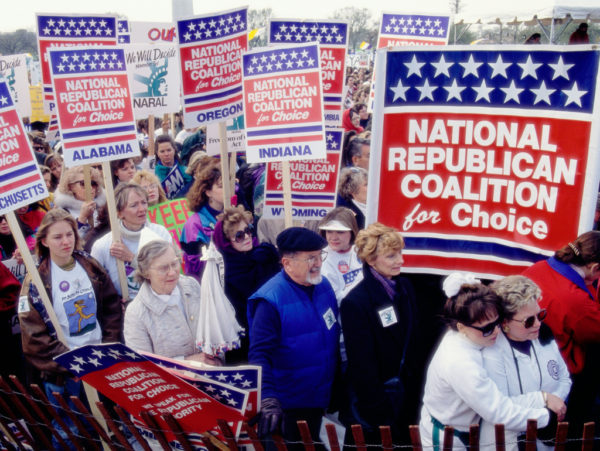

What is Political Affiliation Discrimination?
Workplace discrimination takes a number of forms. Federal law prohibits workplace discrimination by private employers.
Discrimination is prohibited on the basis of gender, religion, color, national origin, race, and age.
The First Amendment to the Constitution of the United States prohibits the federal government and state governments from discriminating against government employees.
The government cannot discriminate against employees on the basis of their political affiliation.
In the majority of states, no law prevents an employer from terminating an individual for their political affiliation.
In the majority of states, no law prevents an employer from terminating an individual for their political activity.
What is the DIfference Between Political Affiliation and Political Activity?
Political affiliation is membership in, identifying with the beliefs of, a political party, or ideology.
This party may be an American political party or a party in another country.
Political Ideology is a system of political beliefs, such as communism, socialism, or conservatism. In contrast, political activity refers to engaging in political acts, including being a candidate for public office, voting, or campaigning for a political party.
The difference between affiliation and activity is essentially the difference between identifying with beliefs and acting upon those beliefs.
For example, a person engages in political affiliation by joining a union, which is made up of like-minded members.
In comparison, a person engages in political activity by taking those beliefs and acting on them, such as by attending marches or rallies, or engaging in lawful protest.
Can I be Discriminated Against for Political Affiliation or Activity?
In the majority of states, a private employer may lawfully terminate an individual’s employment on the basis of that person’s political affiliation or activity.
The First Amendment only restrains the government from infringing on political beliefs and affiliation, not private employers.
There is no “freedom of speech” right in private employment.
However, in a growing trend, a number of states have passed laws creating this right.
In these states, employers may not take unfavorable job actions (i.e., termination, demotion) based on political affiliation or activity.
These states include:
-
- California. In California, employers may not control the political affiliation or activities of workers. Employers cannot threaten to terminate workers for refusing to engage in specific political activity.
-
- Colorado. In Colorado, an employer may not prevent employees from engaging in political activities. An employer may not terminate an individual because of political affiliation.
-
- District of Columbia. In the District of Columbia, employers cannot discriminate against employees based on political affiliation.
-
- Louisiana. Louisiana law prohibits employers from threatening or intimidating individuals on account of political party affiliation.
-
- Minnesota. Minnesota law prevents employers from financially retaliating against, or threatening to fire, an individual based on that individual’s political activities.
-
- Montana. Under Montana law, an employee may only be terminated for “good cause.” That is, the termination must be based on reasonable grounds related to work performance. Termination based on political activity is prohibited. Termination based on political affiliation is prohibited.
-
- Nebraska. Employers may not threaten to terminate individuals based on their political activities.
-
- New Jersey. New Jersey law prohibits employers from requiring employees to take part in employer-sponsored meetings about the employer’s political opinions or positions.
-
- New York. Employers cannot discriminate against employees based on their off-duty, off-premises political activities.
-
- South Carolina. Employers may not terminate a citizen from employment because of that person’s political opinions or activities.
- Wisconsin. Wisconsin law also prohibits employers from threatening to terminate employees based on political activity.
more recommended stories
 Fentanyl Seizures at Border Continue to Spike, Making San Diego a National Epicenter for Fentanyl Trafficking
Fentanyl Seizures at Border Continue to Spike, Making San Diego a National Epicenter for Fentanyl TraffickingFentanyl Seizures at Border Continue to.
 Utah Man Sentenced for Hate Crime Attack of Three Men
Utah Man Sentenced for Hate Crime Attack of Three MenTuesday, August 8, 2023 A.
 Green Energy Company Biden Hosted At White House Files For Bankruptcy
Green Energy Company Biden Hosted At White House Files For BankruptcyAug 7 (Reuters) – Electric-vehicle parts.
 Former ABC News Reporter Who “Debunked” Pizzagate Pleads Guilty of Possessing Child pδrn
Former ABC News Reporter Who “Debunked” Pizzagate Pleads Guilty of Possessing Child pδrnFriday, July 21, 2023 A former.
 Six Harvard Medical School and an Arkansas mortuary Charged With Trafficking In Stolen Human Remains
Six Harvard Medical School and an Arkansas mortuary Charged With Trafficking In Stolen Human RemainsSCRANTON – The United States.
 Over 300 People Facing Federal Charges For Crimes Committed During Nationwide Demonstrations
Over 300 People Facing Federal Charges For Crimes Committed During Nationwide DemonstrationsThe Department of Justice announced that.
